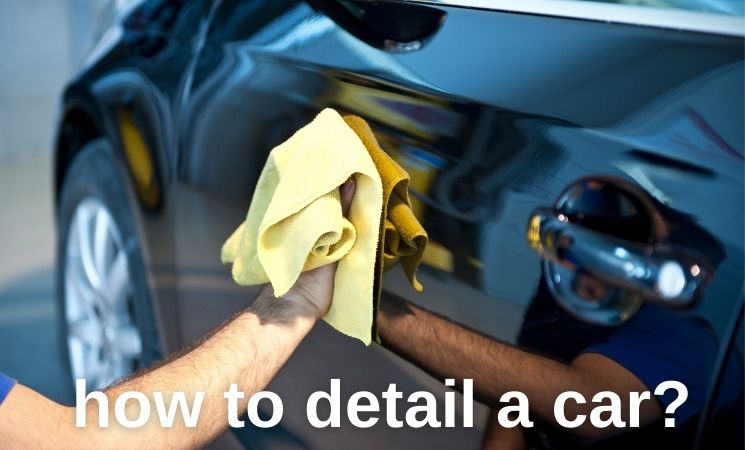Detailing a car’s exterior is crucial for maintaining its appearance and protecting it from harsh winter conditions. Regular detailing not only achieves a showroom shine but also safeguards the paint, metal, and glass against damage from road salt, snow, and grime. This guide will cover the car detailing process, essential supplies and techniques, overcoming winter detailing challenges, and the benefits of DIY vs professional auto detailing.
Here are some key solutions for effectively detailing a car exterior in winter:
| Goal | Solution |
|---|---|
| Removing road salt | Wash frequently, use salt-specific cleaners |
| Fighting grime buildup | Clay bar paint, polish and wax regularly |
| Avoiding winter damage | Apply protective sealants and ceramic coatings |
| Maintaining shine | Use the two-bucket method, microfiber mitts, proper drying techniques |
| Fighting icy windows | Use de-icers formulated for glass |
Understanding the Detailing Process
Car detailing goes beyond a typical wash to thoroughly clean, polish, and protect all exterior surfaces of a vehicle. It involves:
- Washing with specialty cleaners and mitts
- Clay barring to remove contaminants
- Polishing and waxing for shine and protection (learn more about how detailing can address scratches here).
- Applying sealants and ceramic coatings as needed
- Cleaning wheels, tires, windows, chrome
Exterior detailing removes dirt, oxidation, swirls, stains and environmental contaminants to reveal the paintwork’s true color and luster.

Essential Detailing Supplies and Equipment
Detailing a car requires having the right supplies and tools on hand:
- Microfiber mitts, towels and applicators
- pH-balanced car shampoo
- Wheel and tire cleaner
- Clay bar kit
- Car polish and wax
- Buffers and polishers
- Sealants and ceramic coatings
- Glass cleaner and towels
Seeking out eco-friendly detailing products helps reduce environmental impact. Biodegradable cleaners and plant-based waxes are excellent options.
Techniques for Achieving a Showroom Shine
Follow these best practices for a flawless polished look:
- Wash using the two-bucket method and grit guards
- Dry with a microfiber drying towel, patting paint gently
- Clay bar paint to remove embedded contaminants
- Polish by hand or with a buffer to smooth paint
- Wax using thin, even overlapping strokes
- Check for streaks and missed spots, correcting as needed
Avoid these common detailing mistakes:
- Washing in direct sunlight
- Using same wash mitt on paint and wheels
- Letting soap or water dry on paint
- Waxing over unprepared paint
- Buffing wax before fully cured
Winter Car Care: Challenges and Solutions
Cold temperatures and road salt make winter detailing uniquely challenging. Here are some solutions:
- Wash frequently with salt-removing cleaners
- Rinse thoroughly to prevent salt corrosion
- Clay bar more aggressively to fight grime
- Apply durable paint protection before winter
- Remove snow and ice carefully using deicers
- Clean glass with vinegar-based cleaner
- Wax paint monthly for added protection
- Store car in a garage to minimize exposure
DIY vs Professional Detailing
DIY detailing allows you to save money and care for your car whenever needed. However, professional services provide expertise and tools for outstanding results.
Consider professional detailing for:
- Show-quality shine and protection
- Ceramic coatings requiring controlled application
- Severely neglected vehicles requiring paint correction
- Lack of time, space or skills for DIY care
DIY is ideal if you:
- Simply want a clean car
- Are willing to learn proper techniques
- Have time for frequent washes
- Prefer inexpensive products
A cost-benefit analysis helps determine the best option. If you’re wondering about time considerations for either option, check out this detailed breakdown of how long car detailing takes.
Long-Term Benefits of Regular Winter Detailing
Consistent winter vehicle care through detailing:
- Maintains higher resale value
- Extends paint’s life by preventing oxidation
- Reduces rust and corrosion long-term
- Keeps glass and lights crystal clear
- Ensures flawless appearance year-round
As Phillips from Onsite Detail says: “Caring for your car’s exterior through harsh winters will pay off for years to come”.
Innovative Technologies in Car Detailing
Exciting new advances are transforming detailing:
- Ceramic coatings for multi-year protection
- Nanotechnology-enhanced waxes and sealants
- High-gloss polymer paint sealers
- Automated touchless car washes
- Advanced steam cleaners and degreasers
- Graphene-infused ceramic spray coatings
These allow both professionals and DIY detailers to achieve better results than ever before.
Expert Opinions and Recommendations
According to detailing professionals:
- Wash weekly and apply protection before winter
- Remove snow with a soft brush, not scrapers
- Invest in a dual-action polisher for easy wax buffing
- Clay bar twice yearly for contaminant removal
- Use carnauba or polymer wax for maximum water beading
- Apply ceramic coating to high-contact areas first
Our winter detailing checklist:
- Wash mitt, grit guards, pH neutral soap
- Wheel, tire, glass, and chrome cleaners
- Clay bar kit and lubricant
- Dual-action polisher with wax and sealant
- Tarminator towel for stubborn grime
- Microfiber buffing and drying towels
- Full-vehicle ceramic coating (optional)
With the right techniques and products, detailing a car exterior can be accomplished by DIYers and professionals alike despite cold conditions. Consistent care safeguards your vehicle’s appearance while protecting its surfaces from seasonal damage. Investing time into regular detailing pays dividends through enhanced resale value, reduced deterioration, and year-round cleanliness.




